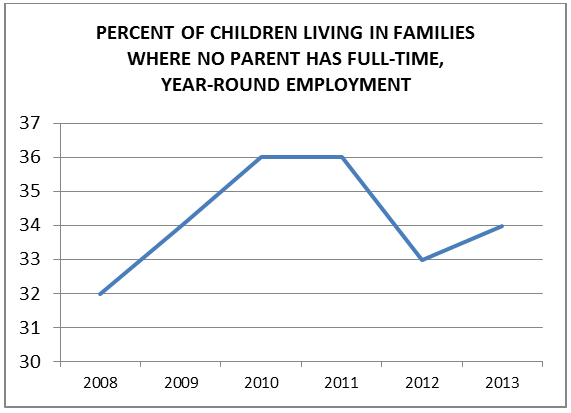
Low-income workers, especially women, are more likely to work jobs with unpredictable schedules. The percent of Arkansas kids whose parents do not have full-time, year-round employment has gone down overall since 2011, but it is still above pre-recession levels. This means that 34 percent of kids in Arkansas still live in households where neither parent has steady work.
See the entire Kids Count Data Book here.
You can see the Arkansas-specific data here.
Parents with a stable job have an easier time affording quality child care, providing safe housing and healthy meals, but they also have the underrated luxury of a predictable work schedule. Low-income earners are more likely to have to stitch together a patchwork of part-time or seasonal jobs instead of one steady full-time job. They also have to go through the stressful gymnastics of arranging for child care on a moving target schedule. In addition to complicating child care schedules, unpredictable employment can have negative impacts on parent’s marriages, their ability to spend time with their kids, family economic security, and a child’s ability to succeed in school.

Dropping a kid off at day care or with a relative, only to be sent home early from work, or being asked to come in to work unexpectedly and scrambling to find a last minute child care option can be a heavy financial and social burden. A steadily underfunded pre-K budget has also left parents with fewer and fewer options for affordable, quality child care. A lack of state paid leave laws also makes it harder for low-income parents in Arkansas to balance work and family priorities. Find out more about where Arkansas families are headed in our summary of the 2015 Kids Count state rankings.
